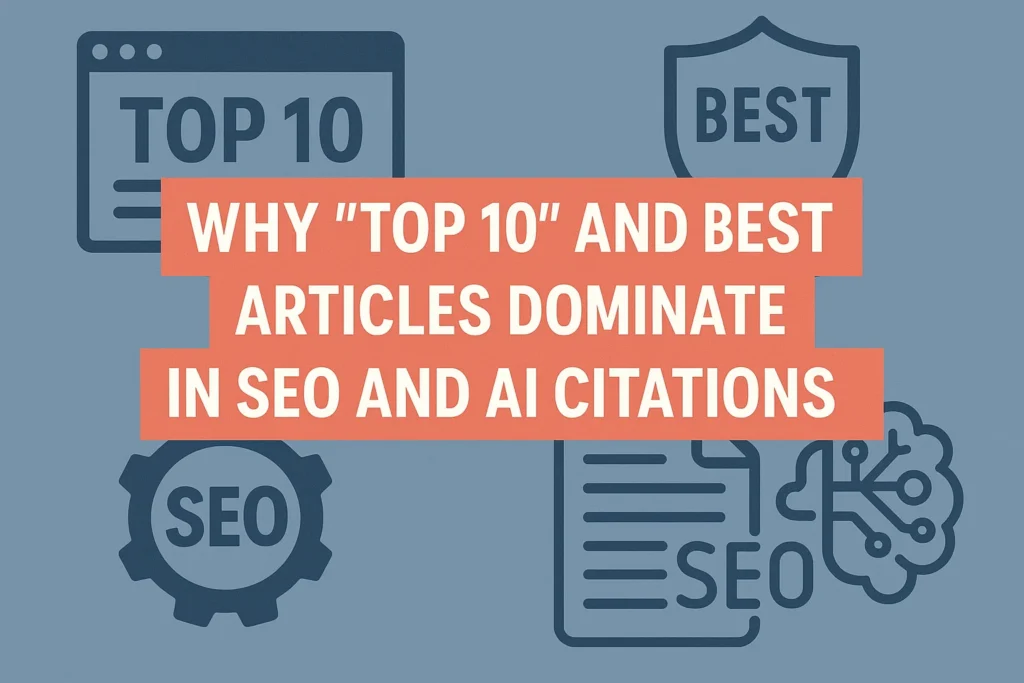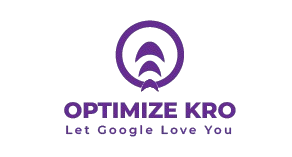When people search online—whether in Google or through AI assistants like ChatGPT, Claude, or Gemini—they naturally use phrases such as:
- “best SEO expert in London”
- “top digital marketing agencies near me”
- “10 best tools for AI content writing”
This search behavior explains why “Top 10” or “Best” style articles consistently perform better than generic content. Both human searchers and AI engines favor content that is structured, comparative, and list-based. Let’s dive deeper into why this works—and how you can use this strategy for higher rankings and AI citations.

1. Searcher Psychology: People Want the “Best”
When a user searches online, they don’t just want information—they want the best choice with the least effort. “Best” and “Top” articles instantly convey authority, trust, and a filtered list, saving the user time and decision fatigue.
For example, instead of asking:
- “SEO expert in London”
Most people type: - “best SEO expert in London”
This aligns your content directly with real user intent.
2. AI Engines Prefer Listicles
AI search tools like ChatGPT, Claude, and Gemini summarize vast data into quick answers. When your article is formatted as a Top 10 list, it’s easier for them to extract, cite, or recommend. Structured lists = structured answers.
For instance, if someone asks an AI:
- “Give me the best SEO agencies in London”
The AI looks for pre-existing ranked lists (Top 10, Best, etc.) because they are already curated and easy to parse.
3. Natural Keyword Integration
“Best” and “Top” keywords naturally integrate into titles, meta descriptions, and H2 headings. Examples:
- Top 10 SEO Experts in London (2025 Edition)
- Best Local SEO Agencies for Small Businesses
These phrases improve CTR (click-through rate) in Google while also aligning perfectly with AI prompt patterns.
4. Higher Engagement & Readability
Users prefer scannable content. A Top 10 article is naturally structured with:
- Headings (H2, H3)
- Short descriptions per item
- Pros/cons or highlights
This makes content digestible for humans and AI engines alike.
Read More:
How to Create a Free 90+ DR Backlink from Google (Without Hurting Your SEO)
What is GEO in SEO – Generative Engine Optimization?
How to Index Backlinks (Fast & Simple Guide)
5. Evergreen + Easy to Update
Listicles are evergreen by nature. You can always refresh them yearly:
- Top 10 SEO Experts in London [2024] → [2025]
This keeps rankings fresh, helps AI engines recommend updated content, and attracts backlinks.
6. More Shareable Content
“Top 10” and “Best” articles are highly shareable. Businesses love being featured in lists, and readers like sharing curated recommendations. This increases backlinks and improves domain authority—two signals Google and AI both consider when ranking or citing content.
7. AI Citations Depend on Structured Authority
AI engines don’t just summarize—they prefer to reference authoritative, structured content. By creating Top/Best lists with clear formatting, you increase your chances of being directly quoted or cited by AI when people ask questions.
Example: “Top 10 SEO Experts in London”
Here’s how you would structure such an article:
1. [Expert/Agency Name] – Known for Local SEO Excellence
- Services: GBP Optimization, Local Citations, On-page SEO
- Why They’re Top: Proven track record in small business SEO
What Our Clients Say
Trusted by contractors and local businesses for proven Local SEO Services.
John M. – General Contractor
“These guys transformed my Google Maps ranking. More calls, more local leads, and better visibility!”
Sarah L. – Roofing Business
“Within 3 months, my business went from page 3 to the top 3 listings. Highly recommend their Local SEO service!”
David K. – Plumbing Services
“Affordable and effective SEO. My local service calls doubled in less than 90 days.”
2. [Expert/Agency Name] – Best for Enterprise SEO
- Services: Technical SEO, Link Building, Content Strategy
- Highlight: Works with Fortune 500 brands
(continue until 10 entries…)
Each entry should have:
✅ A short intro
✅ Specialization
✅ Why they stand out
Pro Tip: Use Variations of “Best” & “Top”
Instead of repeating the same headline structure, mix in variations:
- “Best SEO Experts in London”
- “Top 10 SEO Agencies You Can Trust”
- “London’s Leading SEO Specialists”
This strengthens semantic SEO and gives AI engines multiple ways to cite your content.
Final Thoughts
If your goal is to rank in Google AND get cited by AI engines like ChatGPT, Claude, and Gemini, writing “Top 10” or “Best” style articles is one of the most effective strategies.
- Humans trust lists because they’re easy to digest.
- Google favors them because they align with user intent.
- AI engines prefer them because they’re structured and easy to extract.
👉 Next time you’re writing content for SEO, think like both a human searcher and an AI engine—give them the “best” or “top” answers right away.
“Top 10” articles rank higher because they provide list-style content that is easy to skim, boosts click-through rates, and matches user intent for quick comparisons.
“Best” articles dominate because search engines reward content that clearly identifies top recommendations, increasing trust and relevance for users.
Yes, listicles perform better in SEO since structured lists improve readability, encourage sharing, and often earn featured snippets.
AI tools prefer citing “Top 10” and “Best” articles because they are structured, authoritative, and concise—making them easier to reference in answers.
Using “Top 10” signals clear value, improves click-through rates, and aligns with high-volume search patterns.
AI models favor these lists because they summarize vast data into ranked, trustworthy insights that users quickly understand.
Yes, people prefer sharing ranked lists since they look authoritative and create engagement through comparisons.
Absolutely—other sites often cite ranked content as references, boosting authority and backlinks.
They remain evergreen because rankings and “best picks” can be updated regularly, keeping the content relevant.
They enhance trust by presenting curated, expert-like recommendations, making users more likely to engage and convert.

Gulfam Qamar is a seasoned Local SEO expert with a proven track record of helping businesses boost their online visibility and dominate local search results. With deep expertise in Google Business Profiles, on-page optimization, and local citation strategies, Gulfam helps brands connect with nearby customers and grow sustainably. When he’s not optimizing websites, he’s sharing actionable SEO tips and insights to empower small businesses in the digital space.

